How NBCI Is Organized?
NBCI is organized by dividing the country into five geographic areas.
Key Churches
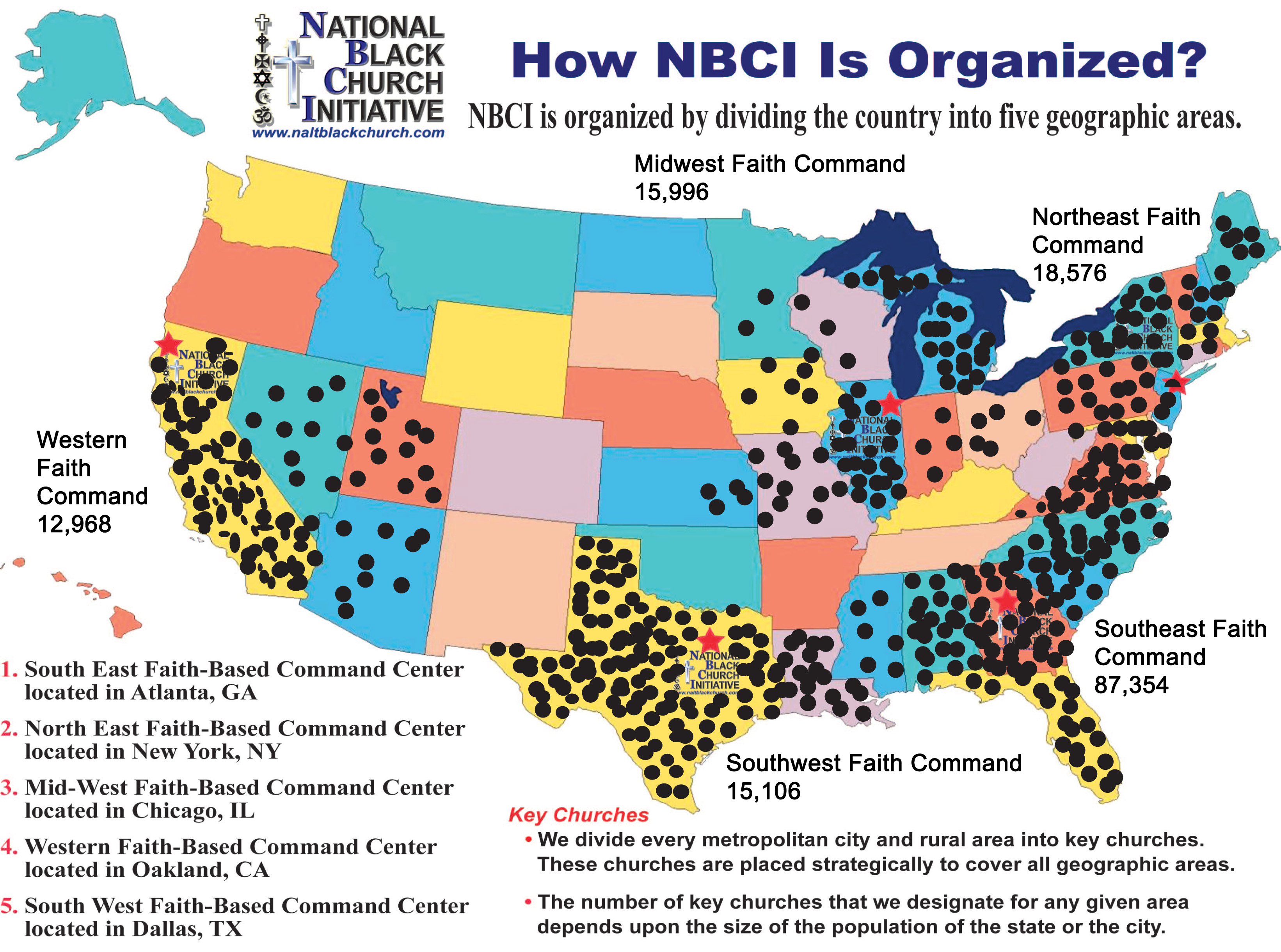
- We divide every metropolitan city and rural area into key churches. These churches are placed strategically to cover all geographic areas.
- The number of key churches that we designate for any given
area depends upon the size of the population of the state or the
city.
-
For example, a city like the District of Columbia that has a population
under 1 million, has 24 key churches.
A city like Chicago or Atlanta has 78 to 100 key churches.
Those churches that surround the key churches are called cluster churches and they feed into those key churches for information and programming.
NBCI Communication and Distribution Network
NBCI has 34,000 churches. Because of our enormous size, we are able to conduct
targeted distribution of health literature and other materials.
This makes us one of the largest distribution networks in the country.
We can easily limit this distribution network to NBCI churches,
NBCI sister churches, or other churches outside our distribution
network.
With this enormous distribution network, we can touch every metropolitan
and rural area in the country where African Americans and Latinos
reside. We also have the capacity to create literature both in Spanish
and in English. Having this reach gives us a unique service to reach
into metropolitan areas and deliver literature to zip codes, wards
of cities (city election boundaries), as well as to certain neighborhoods.
Over the years, we have been able to perfect this particular distribution
network. This is one of NBCI's strong suits, and we are developing
new techniques and strategies to improve the accuracy and speed
of delivery of critical health information and other materials that
will strategically affect the African American and Latino communities.
In the future we are looking to incorporate our technology information
initiative by connecting key churches through wireless communication.
We accomplish this task by sending the literature to our key churches
that, in turn, distribute that literature through our cluster churches.
With this type of accuracy we are able to target certain churches,
individuals, genders or races.
We have the capacity to distribute large volumes of health information
to target populations for specific health concerns.
We can deliver gender specific health literature to women concerning
breast cancer, heart disease and other diseases like osteoporosis.
If we are talking about breast cancer, we are one of the few national
organizations that have the capacity to distribute a large volume
of health information to women who are a part of our congregations.
The targeting of those women for this literature is usually done
by the Center of Diseases Control (CDC). CDC concludes that a particular
age group is vulnerable to this disease state and should be tested.
NBCI surveys its congregation and maps out a strategy to deliver
targeted information to a specific group of women in our congregation.
We also have the ability to identify or target health information
for men. If the literature is for men who are fifty-five and over
concerning a disease like prostate cancer or other male diseases
we will provide the same manner of information distribution within
our congregations for them. We are able to accomplish this task
through the NBCI /DCBCI Health Note.
Reverend Evans has been recognized by Aetna Health Insurance company as an individual moving health and wellness messages to the forefront.
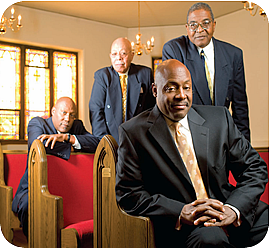
For 30 years, Aetna has celebrated African American history through the publication of its African American History Calendar.
This calendar celebrates remarkable individuals who have dedicated their lives to inspiring and empowering others to spend time taking care of their minds, bodies and spirit.
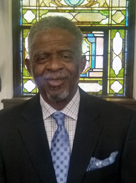 The National Black Church Initiative North East Faith-Based Command
Center located in Atlanta, GA
The National Black Church Initiative North East Faith-Based Command
Center located in Atlanta, GA 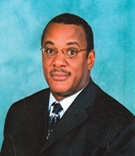 The National Black Church Initiative North East Faith-Based Command
Center located in
Baltimore, MD
The National Black Church Initiative North East Faith-Based Command
Center located in
Baltimore, MD  The National Black Church Initiative Mid-West Faith-Based Command
Center located in Chicago, IL
The National Black Church Initiative Mid-West Faith-Based Command
Center located in Chicago, IL 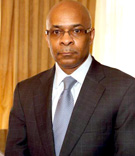 The National Black Church Initiative Western Faith-Based Command
Center located in Oakland, CA
The National Black Church Initiative Western Faith-Based Command
Center located in Oakland, CA